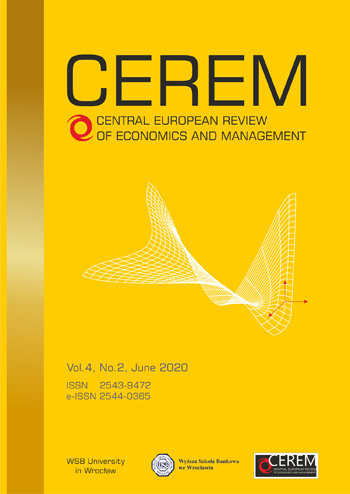Conflict management in university examination timetabling. A case study of summer school mid-terms
Conflict management in university examination timetabling. A case study of summer school mid-terms
Author(s): Mustafa Mehmet Bayar, Irmak UZUN BAYARSubject(s): Socio-Economic Research
Published by: Wyższa Szkoła Bankowa we Wrocławiu
Summary/Abstract: Aim: This study is on tackling Examination Timetabling Problem (ETP) of the Faculty of Economics And Administrative Sciences (FEAS) of the Ankara HBV University summer school, where the courses of fall and spring semesters are offered simultaneously and regulations on restricting enrollments in inter-department electives or in-department courses of distinct years are relaxed. Thus, the complexity of the nature of the ETP problem is exacerbated. The direct heuristics based on successive assignments that the university normally adopts was proven inadequate for assuming standard regulations hence, another approach we explain in this paper was needed.Design / Research methods: The ETP was formulated as a Linear Mixed-Integer Program (LMIP) and decomposed into three stages; timetabling exams, room assignment, student allocation. To manage the conflict between the stakeholders of the examination procedure, a lexicographic optimization process based on the priority of the parties was undertaken.Conclusions / findings: After a recursive timetabling process based on a trial-and-error method a clash-free timetable was generated and, a room assignment plan that minimizes the total number of proctoring duties, usage of higher floor rooms and total crowdedness of rooms respectively was put into action. Therefore no student group experienced any clashing exams, the faculty members saved time that can be spent on research instead, since the room usage was better planned the costs (elevator usage, lighting, air conditioning, the labor of the janitors) were assumed to be decreased.Originality / value of the article: Each examination period bares a different ETP due to its problem-specific nature (number of courses offered, the structure of student enrollments, availability of rooms, etc.). Summer schools provide a more irregular structure that demands special attention, a trial-and-error reformulation of the ETP in our case. In addition, the traditional formulations of the ETP, to the extent we have been able to scan, do not include the minimization of the crowdedness of the rooms. Thus, in creating a more comfortable environment, easier to monitor exams and, ability in handling unexpected dysfunctionalities (broken classroom equipment, etc.) this study is novel.Limitations of the research: The algorithms to solve an ETP formulated as an LMIP are of high complexity therefore, we are not able to assert the optimality of our suggested solutions acquired within time limitations.
Journal: Central European Review of Economics and Management (CEREM)
- Issue Year: 4/2020
- Issue No: 3
- Page Range: 67-87
- Page Count: 21
- Language: English

